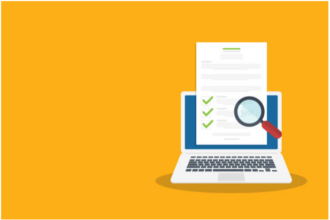Introduction to Global Risks in 2021
The world is a complex web of interconnected systems, and as we entered the landscape was anything but predictable. From the far-reaching impacts of the COVID-19 pandemic to escalating geopolitical tensions, https://finanzasdomesticas.com/principales-riesgos-mundiales-2021/ global risks have become more pronounced than ever before. This year presents a unique set of challenges that could reshape economies, political landscapes, and even our environment. Businesses and individuals alike must navigate these turbulent waters with caution and foresight.
As we delve into the main threats looming over us in https://finanzasdomesticas.com/principales-riesgos-mundiales-2021/, it becomes clear that understanding these risks is crucial for making informed decisions. Whether you’re an investor trying to safeguard your portfolio or simply someone looking to stay aware of what’s happening in the world around you, knowledge is power. Let’s explore what’s at stake this year and how these global factors might influence our lives moving forward.
Economic Risks:
The global economy is still feeling the aftershocks of the COVID-19 pandemic. Many countries are grappling with recovery, which has been uneven and fraught with challenges.
Debt levels have soared to unprecedented heights. This raises alarms about potential defaults that could ripple through financial markets. Nations face tough choices on how to manage this burden without stifling growth.
Inflationary pressures are another concern, as governments navigate the delicate balance between stimulus and fiscal responsibility. Rising costs can erode purchasing power, leaving consumers in a tight spot.
Supply chain disruptions continue to plague industries worldwide. As businesses struggle to adapt, delays and increased expenses become commonplace.
Investors are watching closely for signs of stability or further turmoil. The economic landscape remains uncertain, creating both challenges and opportunities in equal measure.
– Impact of the COVID-19 pandemic on economies
The https://finanzasdomesticas.com/principales-riesgos-mundiales-2021/ pandemic has reshaped global economies in unprecedented ways. Lockdowns and restrictions led to a sudden halt in business activities, disrupting supply chains and reducing consumer spending.
Many industries faced severe setbacks, particularly travel and hospitality. Job losses soared as companies struggled to adapt to the new normal. The ripple effect was felt across various sectors, impacting everything from retail to manufacturing.
Governments responded with stimulus packages designed to revive economies. While these measures provided temporary relief, they also raised concerns about long-term debt sustainability.
Inflation rates began creeping up as supply chain disruptions persisted. This created an uneasy environment for businesses trying to recover while facing rising costs.
Shifts toward remote work have transformed labor markets too. Companies are reevaluating their operational strategies, leading some economists to predict lasting changes beyond the pandemic’s immediate effects.
– Rising debt levels and potential for defaults
Rising debt levels are a significant concern for many economies in https://finanzasdomesticas.com/principales-riesgos-mundiales-2021. Governments around the globe have ramped up borrowing to combat the effects of the pandemic. This surge in debt has created an intricate financial landscape.
With businesses shuttered and unemployment rates soaring, revenue streams have dwindled. Many countries face mounting pressure as they struggle to meet their obligations while also providing necessary services.
The potential for defaults looms large. As repayment deadlines approach, some might find themselves unable to honor debts. This scenario could lead to widespread economic repercussions, affecting not just borrowers but entire industries reliant on stable credit.
Investors are keeping a close eye on these developments. The uncertainty surrounding rising debt creates an environment where risk assessment becomes crucial for decision-making in both public and private sectors.
Political Risks:
Political risks have surged in importance, shaping the global landscape in 2021. Geopolitical tensions are at an all-time high, creating uncertainty across borders. Trade wars have complicated relationships between major economies, leading to unpredictable market responses.
Elections scheduled this year could further fuel instability. Many nations face polarized sentiments among voters, raising concerns about governance and policy direction. Populism and nationalism continue to rise, influencing political agendas worldwide.
The implications of these shifts can be profound for businesses and investors alike. Decisions made in one part of the world can quickly ripple through markets elsewhere.
Additionally, countries with fragile democracies may experience unrest or upheaval during election cycles. This unpredictability is a critical factor for anyone navigating international investments or operations today. Understanding these dynamics is essential for mitigating potential risks associated with changing political climates.
– Geopolitical tensions and trade wars
Geopolitical tensions have reached a boiling point in recent years. Nations are grappling with complex relationships that affect global stability. The rise of nationalism and protectionism has reshaped traditional alliances.
Trade wars are emblematic of these tensions, as tariffs and sanctions become common tools for exerting pressure. Countries like the United States and China have been at the forefront, engaging in tit-for-tat measures that disrupt markets worldwide.
These conflicts extend beyond economics; they influence diplomatic relations too. Businesses must navigate an increasingly uncertain landscape, where political decisions can impact supply chains overnight.
As nations prioritize their interests, collaboration takes a back seat to competition. This shift not only affects trade but also impacts global governance and security dynamics across regions.
– Upcoming elections and political instability
Political instability often rears its head around election time. As nations prepare for crucial votes, tensions can escalate. Citizens are anxious about the future, and that anxiety can lead to unexpected outcomes.
In many regions, upcoming elections serve as a flashpoint for discontent. Protests may erupt as people express dissatisfaction with their leaders or policies. The atmosphere becomes charged, leading to uncertainty in markets and industries alike.
Candidates often exploit these moments of unrest to bolster their campaigns. They promise change but sometimes fail to deliver tangible solutions once elected. This cycle breeds skepticism among voters and deepens divisions within society.
The global implications of political turmoil cannot be ignored either. Decisions made during this period might reverberate beyond borders, affecting international relations and trade agreements significantly.
Environmental Risks:
The world is facing an escalating environmental crisis. Climate change remains a pressing challenge, fueling extreme weather events and natural disasters. These occurrences disrupt lives, displace communities, and strain resources.
Industries are not immune to these shifts. Agriculture suffers from unpredictable weather patterns, while insurance companies grapple with rising claims due to severe storms and wildfires. This creates instability in markets that rely heavily on predictable conditions.
Biodiversity loss compounds these issues. Ecosystems collapse can lead to food shortages and impact global supply chains significantly.
As awareness grows about the effects of human activity on the environment, businesses are being urged to adopt sustainable practices. Investors increasingly favor eco-conscious companies, influencing market dynamics in unprecedented ways.
Environmental risks extend beyond nature; they intertwine deeply with economic stability and social equity. The path forward demands collective action for a more resilient future that prioritizes our planet’s health.
– Climate change and natural disasters
Climate change is no longer a distant threat; it’s a present reality reshaping our world. Rising temperatures lead to extreme weather patterns, causing floods, hurricanes, and wildfires with unprecedented intensity.
Natural disasters disrupt not only ecosystems but also economies. The aftermath of these events often leaves communities struggling to rebuild while grappling with the loss of livelihoods. Agriculture, tourism, and infrastructure face significant threats from such unpredictability.
Moreover, vulnerable populations bear the brunt of climate impacts. They lack resources for recovery and adaptation strategies. This inequality further exacerbates social tensions and political instability in affected regions.
In addition to immediate destruction, long-term effects on mental health are evident as survivors navigate trauma associated with these calamities. Addressing climate change demands urgent action at global levels to mitigate risks and foster resilience against future natural disasters.
– Impact on industries and markets
Industries worldwide are feeling the strain of environmental risks, particularly as climate change accelerates. Extreme weather events disrupt supply chains and affect production capabilities.
Agriculture faces unprecedented challenges. Farmers are grappling with unpredictable rainfall patterns and rising temperatures, impacting crop yields significantly.
The energy sector is also in a state of flux. As demand for cleaner sources rises, traditional fossil fuel markets may experience declines while renewable energy markets gain traction.
Insurance industries must reassess risk models as natural disasters become more frequent and severe. This shift could lead to higher premiums or even uninsurable regions.
Financial markets react promptly to these changes. Investors are increasingly cautious about funding companies perceived as environmentally irresponsible, pushing firms toward sustainable practices.
As these factors intertwine, industries must adapt quickly to survive in an ever-changing landscape driven by environmental considerations.
Technological Risks:
Technological risks have escalated dramatically in recent years. The surge in cyberattacks poses a significant threat to both businesses and individuals. Hackers are becoming increasingly sophisticated, targeting sensitive data across various sectors.
With remote work on the rise, vulnerabilities in cybersecurity systems have been exposed. Companies face mounting pressure to protect their information from breaches that can lead to financial losses and reputational damage.
Moreover, the rapid advancement of artificial intelligence (AI) raises ethical concerns. As AI systems evolve, they may outpace human understanding and control. This creates uncertainty about accountability when these technologies make critical decisions.
Automation is transforming industries but also leads to job displacement. Workers must adapt quickly or risk being left behind as machines take over routine tasks. Balancing technological progress with security and employment will be crucial moving forward.
– Cybersecurity threats
Cybersecurity threats have emerged as a top concern in today’s interconnected world. As businesses and individuals increasingly rely on digital platforms, the risk of cyberattacks grows exponentially.
Hackers are becoming more sophisticated, using advanced techniques to breach systems. Ransomware attacks can paralyze entire organizations overnight, demanding hefty payments for data recovery.
Moreover, personal information is constantly at risk. Phishing scams trick unsuspecting users into revealing sensitive details. This not only affects individuals but can also compromise companies’ reputations.
The rise of remote work has added another layer of vulnerability. Employees accessing company networks from unsecured locations make it easier for attackers to infiltrate systems.
Staying ahead of these threats requires continuous vigilance and investment in robust security measures. Regular updates and employee training are crucial components in defending against potential breaches.
– Rapid advancement of AI and automation
The rapid advancement of AI and automation is transforming our world at an unprecedented pace. Businesses are increasingly relying on intelligent systems to optimize processes, enhance productivity, and reduce costs.
This shift is not just about efficiency; it also raises important questions about the future of work. As machines take over routine tasks, many worry about job displacement. However, new opportunities are emerging in tech-driven fields that require human creativity and problem-solving skills.
Moreover, industries such as healthcare and finance are witnessing revolutionary changes thanks to AI innovations. From predictive analytics in patient care to algorithmic trading strategies in finance, the impact is profound.
Yet with great power comes responsibility. Ethical considerations surrounding data privacy and decision-making transparency cannot be overlooked as we embrace these advancements. The balance between innovation and caution will shape our society’s relationship with technology moving forward.
6
As we navigate through 2021, understanding the myriad of global risks is essential for businesses, governments, and individuals alike. The interplay between economic challenges, political unrest, environmental shifts, and technological advancements shapes our world more than ever.
The https://finanzasdomesticas.com/principales-riesgos-mundiales-2021/ pandemic has undeniably left a lasting imprint on economies worldwide. With rising debt levels becoming a looming threat and defaults potentially on the horizon, the path to recovery remains fraught with uncertainty. Meanwhile, geopolitical tensions continue to simmer as trade wars escalate and upcoming elections stir political instability across various nations.
Environmental concerns cannot be overlooked either. Climate change presents an imminent danger that affects not only ecosystems but also industries dependent on natural resources. Natural disasters linked to these changes pose additional risks that ripple through markets globally.
Technological risks are multifaceted in today’s landscape. Cybersecurity threats have become a significant concern for organizations striving to protect sensitive data against increasing attacks. At the same time, rapid advancements in AI and automation create both opportunities and challenges—prompting discussions about job displacement alongside innovation.
Awareness of these factors allows us to better prepare for what lies ahead in this complex web of global interconnections. As we move forward throughout https://finanzasdomesticas.com/principales-riesgos-mundiales-2021/ and beyond, vigilance will remain key in navigating these ever-evolving landscape of risks.







